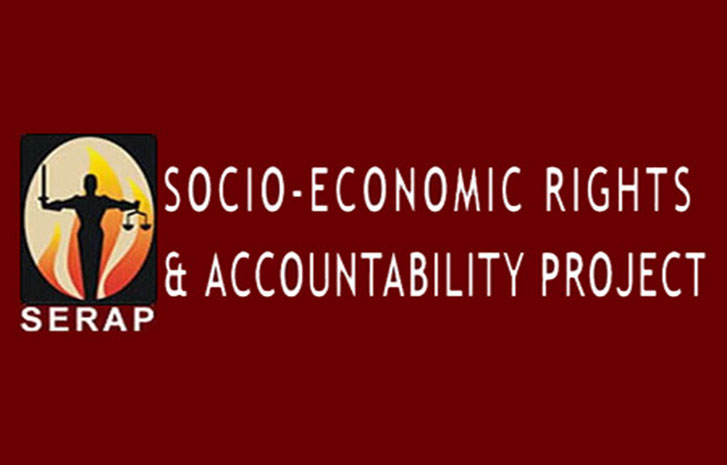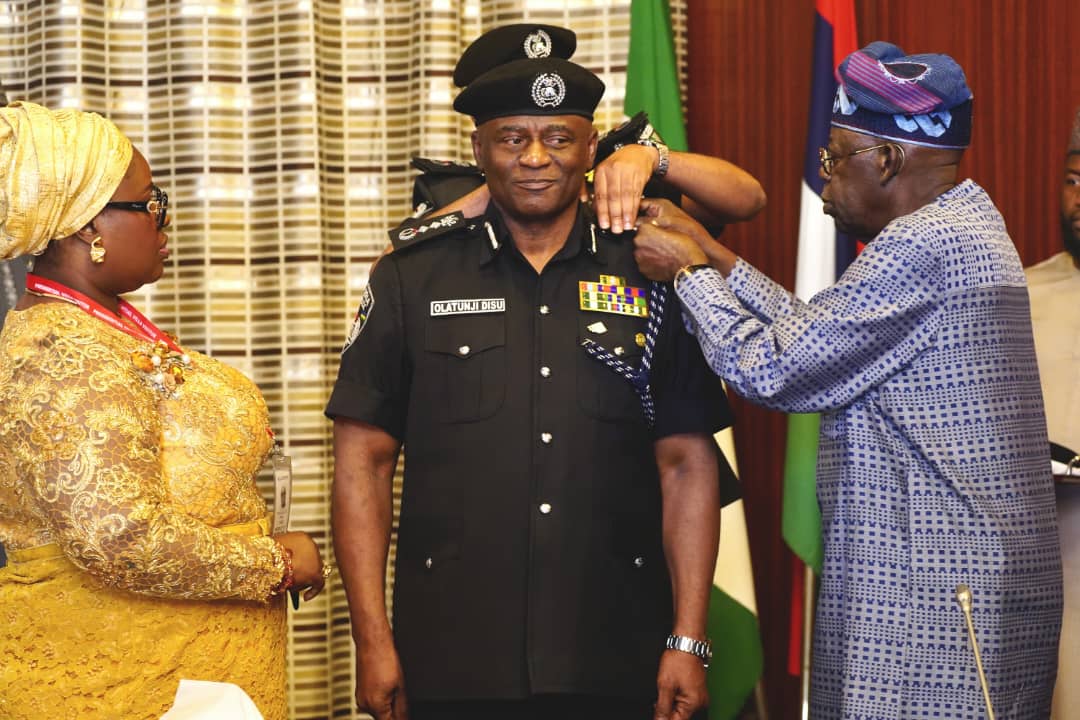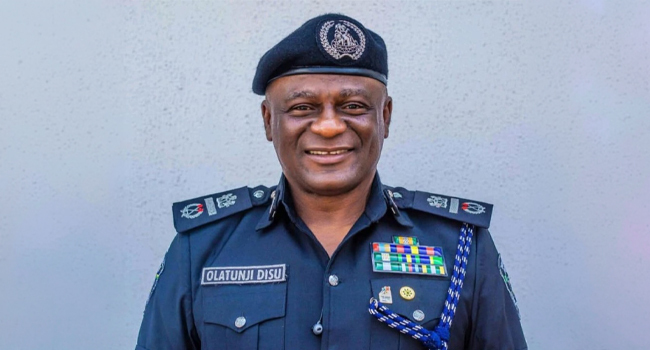Socio-Economic Rights and Accountability Project (SERAP), has described the charges filed against the detained Convener of #RevolutionNow Protest, Omoyele Sowore, as a “hideous mockery of Nigeria’s criminal justice systems”.
The group in an open letter signed by its Deputy Director, Kolawole Oluwadare, and addressed to the Attorney General of the Federation and Minister of Justice, Abukabar Malami (SAN), described the government’s handling of the case as persecution and not prosecution, as well as a breach of the rule of law, freedom of expression and media freedom.
SERAP, therefore, asked the Justice Minister to without delay, discontinue the prosecution of Sowore.
The group further urged him to use his position “to without delay enter a nolle prosequi and discontinue the prosecution of the Convener of ‘RevolutionNow’ protest and publisher of Sahara Reporters, Mr Omoyele Sowore, and Olawale Bakare, also known as Mandate for apparently politically motivated charges of treason, fraud and ‘insulting President Muhammadu Buhari’. “
SERAP said: “We urge you to use your role as a trustee of the public interest under section 174 of the Nigerian Constitution of 1999 (as amended), to end several of similar trumped-up cases going on in several states.”
In the letter dated 21 September 2019 the group stated: “Sowore’s case and several similar cases instigated/brought by state governors make a hideous mockery of Nigeria’s criminal justice systems, rule of law, freedom of expression and media freedom. These cases are persecution and not prosecution. As guardian of the public interest, you have a role to end this travesty now, and to maintain the sanctity and integrity of Nigeria’s justice system.
“These cases set a dangerous precedent for the misuse and subversion of the justice system, which may lead to the politicization of judiciary. This will be bad for everyone—ordinary citizens, journalists and even the politicians in power, as they may themselves become targets of these repressive and abusive tactics when they are out of power/in opposition.”
The letter further read in part: “While the Nigerian government has the responsibility to prevent and prosecute criminal offences, it ought to do so lawfully, and in full compliance with human rights and the rule of law. Exercising your constitutional independence and discretion to withdraw these kinds of charges would meet the text of reasonableness, demands of justice, and as noted, serve the public interest.
“Laws against terrorism and money laundering should be properly used, and not to undermine critical voices, activists, and the media. Invoking the charges of treasonable felony to unjustifiably or arbitrarily restrict the right to freedom of opinion and expression would minimise the seriousness with which our laws traditionally treat such offences, and undermine the essence of the criminal justice system and the rule of law.
“If not urgently addressed, the misuse of the criminal justice system and politicization of Nigeria’s judiciary would jeopardise the independence of the judiciary and the rule of law and lower the public estimation of the ability of our justice system to serve as the last hope of justice for desperate victims. Unless these bogus charges are immediately withdrawn, there is a danger that the public interest represented by the courts and that represented by your role, might part company.
“Attacks on journalism are fundamentally at odds with protection of freedom of expression and access to information, which in turn is key to promoting transparency and accountability, and the achievement of the government’s anti-corruption agenda.
“Withdrawing this case would send a strong message to many state governors that your office will not accept their persistent abuse of the criminal justice systems to jail journalists, bloggers and activists, just as it is, for example, the case in Cross River State, where journalists Agba Jalingo and Ekanem Ekpo have been charged with treason and now being detained for 90 days simply for reporting about an alleged diversion of N500 million by the Cross River governor, Ben Ayade.
“As Nigeria’s Chief Law Officer, it is vital to our democracy, judicial independence and rule of law for you to stop the Federal Government and state governors from misrepresenting the country’s constitutional jurisprudence and international obligations in the matters of freedom of expression and media freedom.
“SERAP notes that last Friday the Federal Government filed a seven-count charge of cybercrimes of insulting Mr Buhari, money laundering and treasonable felony against Sowore and Bakare. The charges followed their detention by security operatives on 2nd August, 2019. Order was his detention was not made until the 8th of August.
“SERAP also notes that at a forum we organized in June 2019 to discuss the legality of the Cybercrimes Act, your representative and the Head of Cybercrimes Prosecution Unit in the Ministry of Justice Mr. Terlumun George Tyendezwa said the Justice Ministry was committed to pursuing the amendment of the Act, to remove its repressive provisions like insulting public officials, which is now being used in this case, and frequently to undermine freedom of expression, media freedom and provide special protection for public figures including president and state governors.
“Nigerian constitution and international human rights treaties such as the International Covenant on Civil and Political Rights and the African Charter on Human and Peoples’ Rights to which Nigeria is a state party protect even shocking and offensive speech.
“Article 19 of the International Covenant on Civil and Political Rights guarantee everyone’s right to hold opinions without interference and to seek, receive and impart information and ideas of all kinds, regardless of frontiers and through any media, including in the form of art.
“The Human Rights Committee in fact underlines in General Comment 34 that laws should not provide for more severe penalties solely on the basis of the identity of the person and that the value placed by the Covenant upon uninhibited expression is particularly high in cases involving public or political figures. Thus, the mere fact that forms of expression are considered to be insulting to these figures is not sufficient to justify the imposition of penalties.
“These restrictions on freedom of expression and media freedom cannot meet the basic tests of legality, reasonableness and proportionality. It is normal for expression to provoke controversy, reaction and discourse, even anger but not punishment, fear and silence.
“We hope that the aspects highlighted will help guide your actions in acting to withdraw the charges against Sowore and Bakare, and several other similar charges instigated or brought by state governors across the county. We would be happy to provide further information or to discuss any of these issues in more detail with you.”























Leave a comment